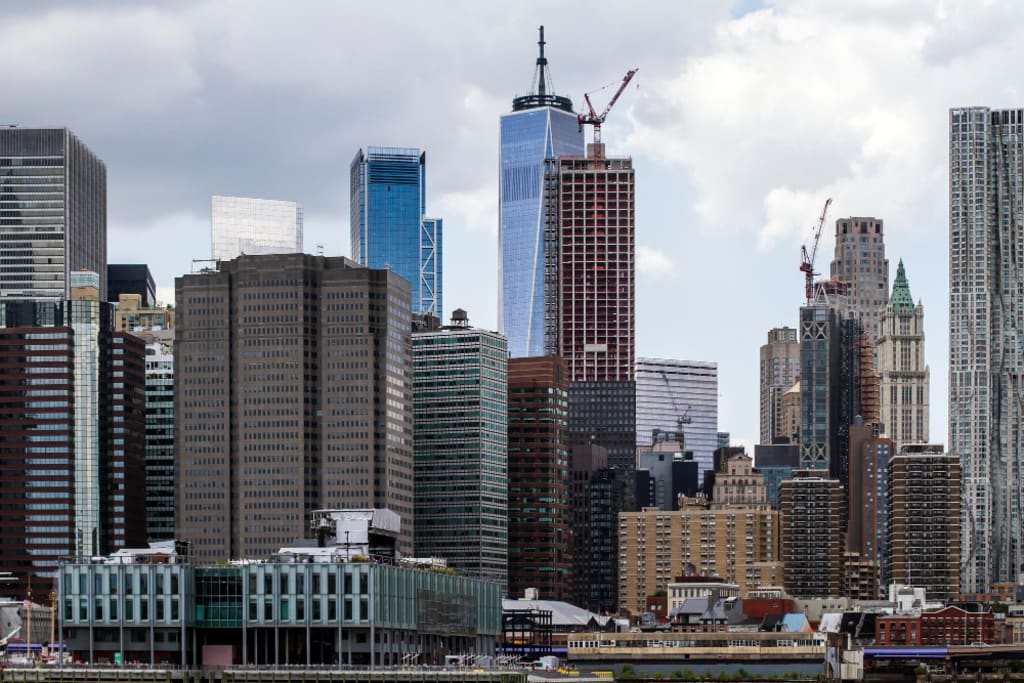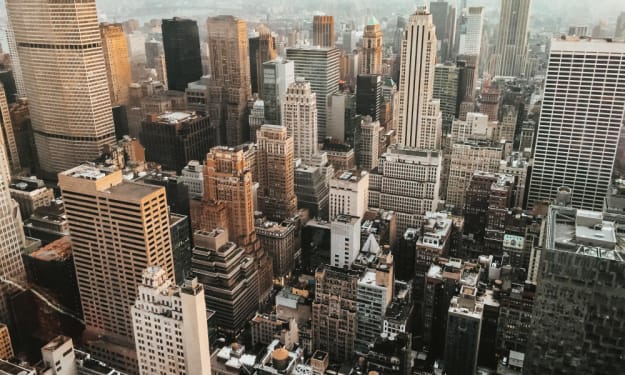Understanding Local Law 88: An Introduction
Local Law 88

Local Law 88, also known as LL88, is a critical piece of legislation in New York City's ongoing efforts to enhance energy efficiency and reduce greenhouse gas emissions. Enacted as part of the city's Greener, Greater Buildings Plan (GGBP), Local Law 88 focuses on improving lighting systems and installing sub-metering in large non-residential buildings. This law represents a significant step towards a more sustainable and energy-efficient future for New York City.
What is Local Law 88?
Local Law 88, often referred to as Local Law 88 NYC or New York Local Law 88, mandates that all large non-residential buildings in New York City upgrade their lighting systems to meet the current energy code. Additionally, these buildings are required to install electrical sub-meters for each tenant space that exceeds 10,000 square feet. The primary goals of Local Law 88 are to reduce energy consumption, lower operating costs, and improve the overall environmental footprint of New York City's built environment.
Also Read: NYC Local Law 97 Compliance
Key Components of Local Law 88
Lighting Upgrades
Under Local Law 88, building owners must upgrade their lighting systems to comply with the latest New York City Energy Conservation Code (NYCECC). This includes:
- Replacing outdated lighting fixtures: Older lighting fixtures, such as incandescent and fluorescent lights, must be replaced with more energy-efficient alternatives like LED lights.
- Installing lighting controls: Automated lighting controls, including occupancy sensors and daylight-responsive controls, are required to ensure lights are used only when needed.
- Meeting specific lighting power density requirements: Buildings must comply with maximum lighting power density (LPD) limits, which dictate the amount of power used per square foot of lighting.
Sub-Metering
Local Law 88 also requires the installation of electrical sub-meters in non-residential tenant spaces larger than 10,000 square feet. Sub-metering involves:
- Installing individual meters: Each tenant space must have its own electrical meter to measure energy consumption separately.
- Providing energy consumption data: Building owners must provide tenants with monthly energy usage data, which encourages energy conservation by making tenants aware of their energy consumption patterns.
Compliance Deadlines and Requirements
Building owners must comply with Local Law 88 by specific deadlines. For lighting upgrades, the deadline is January 1, 2025. Sub-metering requirements had an initial compliance deadline of January 1, 2025, but there have been discussions about extending this deadline to accommodate various challenges faced by building owners.
To ensure compliance, building owners must:
- Conduct a lighting assessment: Assess the current lighting systems to identify areas that need upgrades.
- Develop a compliance plan: Create a detailed plan outlining the steps to upgrade the lighting systems and install sub-meters.
- Implement the upgrades: Complete the necessary upgrades and installations by the specified deadlines.
- File required documentation: Submit compliance documentation to the New York City Department of Buildings (DOB) as proof of meeting Local Law 88 requirements.
Benefits of Local Law 88
Complying with Local Law 88 offers numerous benefits to building owners, tenants, and the environment:
Energy Savings
Upgrading to energy-efficient lighting and implementing sub-metering can significantly reduce energy consumption. LED lights, for example, use up to 75% less energy than traditional incandescent bulbs. Sub-metering allows tenants to monitor and manage their energy use more effectively, leading to additional energy savings.
Cost Reduction
Lower energy consumption translates to reduced utility bills for both building owners and tenants. Energy-efficient lighting systems and the insights gained from sub-metering can help identify areas where further cost-saving measures can be implemented.
Environmental Impact
Reducing energy consumption contributes to lowering greenhouse gas emissions, which is crucial in the fight against climate change. By complying with Local Law 88, buildings in New York City can play a significant role in achieving the city's sustainability goals.
Enhanced Building Value
Energy-efficient buildings are more attractive to tenants and buyers. Compliance with Local Law 88 can enhance a building's marketability, potentially leading to higher occupancy rates and property values.
Improved Tenant Satisfaction
Tenants benefit from better lighting quality and the ability to track and manage their energy use. This can lead to increased satisfaction and retention rates.
Challenges and Solutions
While the benefits of Local Law 88 are clear, building owners may face challenges in achieving compliance. These challenges include:
Financial Constraints
Upgrading lighting systems and installing sub-meters can be costly. However, various financing options and incentives are available to help offset these costs. Building owners can explore:
- NYC Energy Efficiency Corporation (NYCEEC): Provides financing solutions for energy efficiency projects.
- Utility Rebates: Many utility companies offer rebates and incentives for energy-efficient lighting upgrades.
- Tax Incentives: Federal and state tax incentives may be available for energy-efficient upgrades.
Technical Challenges
Implementing lighting upgrades and sub-metering requires technical expertise. Building owners should consider partnering with experienced sustainability consulting firms like The Cotocon Group, which specializes in guiding clients through the compliance process. These firms can:
- Conduct energy audits: Identify areas where upgrades are needed and develop a comprehensive compliance plan.
- Project management: Oversee the installation of new lighting systems and sub-meters, ensuring all work meets the required standards.
- Documentation and reporting: Assist with the necessary documentation and reporting to the NYC Department of Buildings.
Operational Disruptions
Upgrading lighting systems and installing sub-meters can disrupt building operations. To minimize disruptions, building owners can:
- Plan upgrades during off-peak hours: Schedule work during times when the building is less occupied.
- Communicate with tenants: Keep tenants informed about the planned upgrades and how they will benefit from them.
- Phase the work: Implement upgrades in phases to reduce the impact on daily operations.
The Role of The Cotocon Group
The Cotocon Group is a leading sustainability consulting firm that specializes in helping building owners comply with New York City's energy efficiency laws, including Local Law 88. With extensive experience in the field, The Cotocon Group offers a range of services to ensure seamless compliance and maximize the benefits of energy efficiency upgrades.
Services Offered
Energy Audits: Conduct thorough energy audits to identify areas where lighting upgrades and sub-metering are needed.
Compliance Planning: Develop detailed plans to ensure compliance with Local Law 88, tailored to the specific needs of each building.
Project Management: Oversee the entire upgrade process, from selecting energy-efficient lighting fixtures to coordinating the installation of sub-meters.
Financial Assistance: Assist building owners in identifying and securing financing options and incentives to offset the costs of compliance.
Tenant Engagement: Work with tenants to ensure they understand the benefits of the upgrades and how to manage their energy use effectively.
Documentation and Reporting: Handle all necessary documentation and reporting to the NYC Department of Buildings, ensuring timely and accurate compliance submissions.
You Must also Read: All You Need to Know About Local Law 84
Why Choose The Cotocon Group?
Choosing The Cotocon Group means partnering with a firm that is dedicated to sustainability and committed to helping clients achieve their energy efficiency goals. The Cotocon Group stands out for its:
Expertise: Deep knowledge of New York City's energy efficiency laws and extensive experience in the field.
Customized Solutions: Tailored compliance plans that meet the unique needs of each building.
Comprehensive Services: Full-service approach, from energy audits to project management and documentation.
Commitment to Sustainability: A strong focus on reducing environmental impact and promoting sustainable practices.
Conclusion
Understanding and complying with Local Law 88 is crucial for building owners in New York City. By upgrading lighting systems and implementing sub-metering, buildings can achieve significant energy savings, reduce costs, and contribute to a more sustainable future. Despite the challenges, resources and expert guidance from sustainability consulting firms like The Cotocon Group can ensure a smooth and successful compliance process.
With the January 1, 2025, deadline approaching, now is the time for building owners to take action. Whether you need help conducting an energy audit, developing a compliance plan, or managing the upgrade process, The Cotocon Group is here to support you every step of the way. Embrace the benefits of energy efficiency and make a positive impact on your building, your tenants, and the environment by complying with Local Law 88 NYC.
About the Creator
The Cotocon Group
Sustainability Consulting Experts in NYC. Leading the Real Estate Industry in Reducing GHG Emissions & Increasing Property Value.
Website :- https://www.thecotocongroup.com






Comments
There are no comments for this story
Be the first to respond and start the conversation.